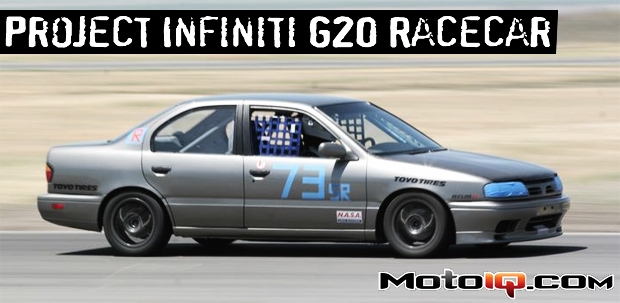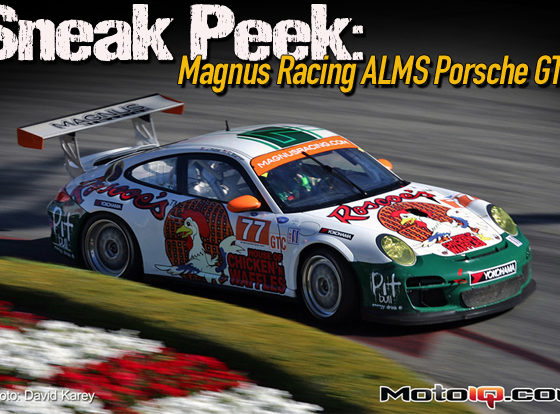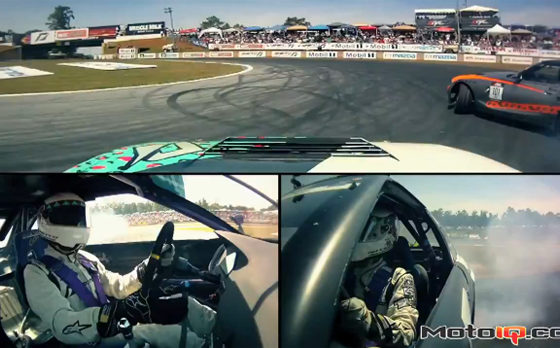,
 |
| The line on top is the rear main feed line from the master cylinder that runs to the Wilwood proportioning valve and back out through the bottom line that goes to the Earl’s T to feed the rear calipers. |
 |
| The rear rotors on the left are almost the same size as the front rotors. Another good reason to have full control of brake bias. |
In order to control the resin build up that occurs in racing conditions, Powerslot rotors are used at all four corners. The Vac-U-Slots in the Powerslot rotors will help evacuate the gases and dust that can build up and reduce braking performance. All Powerslot rotors also come with a durable black e-coat on the hat and edges to prevent corrosion – a definite concern for race cars, which are used for a weekend and stored for weeks or months at a time.

 |
| The black e-coat on the rotors will help keep our rotors corrosion free even after many heat cycles. |
G-Spec Performance brake lines reduced pedal play in the car considerably. The car’s 14 year old rubber lines, with 130k miles under their belts, were questionable at best, scary at worst. Steel braided brake lines do wonders for taking some of the vagary out of your brake pedal. Since the majority of a brake system’s lines are made of steel, and pressure will take the path of least resistance, stock rubber lines will swell up like a balloon under hard braking. Combine this with 14 year old rubber lines that are not as tolerant of inflation as they once were, and you have a possibility for some unwanted excitement. When installing these lines on a P10, you want to make sure to buy another set of rear caliper banjo bolts to use on the front calipers, as the front banjo bolts are too long for the fittings. The G-Spec Performance brake lines come with new brass crush washers as well, so you won’t have to resort to a “Coleman Solution”.
 |
| The G-Spec Performance brake lines gave us a stiffer and more consistent pedal feel. These lines are pressure tested to 4,000 psi! |



